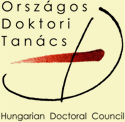|
|
 |
|
| Thesis topic proposal |
| |
Description of the research topic:
in the literature and also within official circles. As Konrad (2003:10) notes, “diversity issue only become salient to scholars in the field of management, human resources, and organisational studies when groups who have been historically excluded from power positions began to enter organisations in large enough numbers to affect organisational life”. Diversity is “sold” to managers as possible remedy and the new way to increase organizational efficiency or creativity, while in fact there is no clear scientific evidence for this endeavour.
In discussions of gender, despite recognising that gender differences vary across cultures, in most organisational analyses, gender is still race and culture blind whilst those privileging differences still neglect the gendered dimension of organisational life. Whilst discourses make practices meaningful through construction of particular objects/subjects of, they are not ’neutral’ practices but rather requires an examination of how power is exercised through a network of institutions, practices, procedures and techniques which act to regulate social conduct (Kelemen and Rumens, 2008).
While arguing against essentialist (fixed, clear-cut, easily measurable categories) approaches to culture, gender, diversity and religion, but rather considering culture, gender, diversity, and religion as socially constructed, which are produced and reproduced in a given context and a given situation. (Zanoni et al. 2010) I share the concern of critical scholars (including Zanoni et al., 2010) that essentializing is problematic, because it naturalizes identities into objective entities, rather than acknowledging their socially constructed nature.
As such, poststructuralist or postmodern feminism (Calas-Smircich 1996, 2006) – based on Foucault’s insights – opens up the possibility of resistance with the notion of difference. This feminist approach breaks with the ‘passive victim’ image of women, and greets the heterogeneity of all women. In postmodern/poststructuralist thinking women have the freedom to construct their own identity, and of course different women may engage discourses of gender differently. One possibility of resistance is creating new discourses on gender identity (Scheurich and McKenzie, 2005).
Poststructuralist/postmodern feminism also apply ‘deconstruction’ for revealing power inequalities. Some argue that deconstruction is a kind of discourse analysis (Kelemen and Rumens, 2008), but we argue it is a different method dealing with texts. While discourse analysis is rather spoken language investigation, deconstruction is a written text analysis, but there exist exceptions. Derrida introduced the term of deconstruction, but he never explicitly explained what it is exactly and how to do it. In management literature, Joanne Martin (1990) gave an excellent summary of the method and illustrated deconstruction with a small text.
Literature:
Calás, M. –Smircich, L. (1996): From ’The Woman’s’ Point of View: Feminist Approaches to Organization Studies, in: Clegg, S.– Hardy, C., Nord, W. R. (eds.) Handbook of Organization Studies, London, Sage
Calás, M.–Smircich, L. (2006): From ’The Woman’s’ Point of View Ten Years Later: Towards A Feminist Organization Studies, in: The SAGE Handbook of Organization Studies, 2nd ed.
Kelemen, M. and Rumens, N. (2008): An Introduction to Critical Management Theory, SAGE, London
Joseph, J. and McKenzie, K. B. (2005): Foucault’s Methodologies. Archeology and Genealogy, in: The Sage Handbook of Qualitative Research 3rd ed., eds: Denzin, N. K. and Lincoln Y. S., SAGE Publication, London
Konrad, A. (2003) Special issue introduction: defining the Domain of Workplace Diversity Scholarship”, Group and Organisation management, 28(1): 4-17.
Fairclough, N. and Wodak, R. (1997). Critical discourse analysis, in van Dijk, T. A. (ed.), Introduction to discourse studies (pp. 258-284). Sage, London.
Gherardi, S. (2003): Feminist Theory and Organization Theory: A Dialogue on New Bases, in: The Oxford Handbook of Organization Theory, eds: Tsoukas, H. and Knudsen, C., Oxford University Pess,
Martin, J. (1990): Deconstructing organizational taboos: The suppression of gender conflict in organizations, Organizational Science, 1: pp. 339-359.
Primecz, H., Laurence Romani, Sonja A. Sackmann (2009) Editorial. Cross-Cultural Management Research: contributions from various paradigms, International Journal of Cross-Cultural Management, 2009/ Dec., pp. 267-274
Primecz Henriett, Laurence Romani, Sonja Sackmann (2011): Cross-Cultural Management in Practice. Culture and Negotiated Meaning, Edward Elgar, Cheltenham
Primecz, H., Romani, L., Topcu, K. (2015 forthcoming): A Multi-paradigm Analysis of Cross-cultural Encounters, in: Routledge Companion to Cross-Cultural Management, eds.: Nigel Holden, Snejina Michailova, and Susanne Tietze, Routledge
Romani, L., Primecz, H., Bell, R. (2014 forthcoming): There is nothing so practical as four good theories, in: Advanced Cross Cultural Management – Developing deep intercultural competencies for a globalized world, eds.: Gherke, B., Claes, M.-T., Palgrave
Nagy B., Primecz, H. (2014): Hard Choices: Hungarian Female Managers Abroad, in: Research handbook on women in international management, eds.: Hutchings, K. and Michailova, S., Edward Elgar, Cheltenham
Marie-Therese Claes, Edeltraud Hanappi-Egger and Henriett Primecz (2012): Gender and Diversity Across Cultures in: Diversity in Organizations: Concepts and Practices, Eds: Mary Ann Danowitz, Edeltraud Hanappi-Egger and Heike Mensi-Klarbach, Palgrave
Romani, L., Sackmann, S. A., Primecz, H. (2011): Culture and negotiated meanings: the value of considering meaning systems and power imbalance for cross-cultural management, in: Primecz Henriett, Laurence Romani, Sonja Sackmann (eds): Cross-Cultural Management in Practice. Culture and Negotiated Meaning, Edward Elgar, Cheltenham
Romani, L., Primecz, H. Topcu, K. (2011): Paradigm Interplay for Theory Development: A Methodological Example with the Kulturstandard Method, Organizational Research Methods, 14 (3), 432-455
Zanoni, P., Janssens, M. Benschop, Y. and Nkomo, S. (2010), Guest editorial: unpacking diversity, grasping inequality: rethinking difference through critical perspectives, Organization, 17(1), 9-29.
Number of students who can be accepted: 1
Deadline for application: 2018-05-02 |
|
|
|
|
|
|
|

 Login
Login Forum
Forum